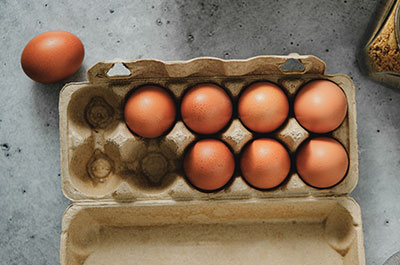What we eat — and how much we eat — is a product of physical hunger, and the amount of time between when you’re full and when you’re hungry again. And sometimes, well, we just want ice cream! Environmental cues (like the aroma of freshly baked chocolate chip cookies), social factors (like happy hour) and even emotional states (happiness, sadness, boredom and stress) can converge and cause you to feel hungry even when you’re technically full.
The good news: At least from a physiological standpoint, certain foods – and ingredients – can help you fill up, boost your metabolism and stave off late-night cravings. Stay full as long as possible by choosing foods with these three components:
- Water. Studies show water-rich foods are more filling than their starchy counterparts. Fruits and vegetables provide high volume through water and fiber – not calories. An apple or orange will make you feel full longer than a slice of bread. The caveat: liquid alone isn’t filling – unless you’re thirsty! So don’t swap out your oranges for orange juice. You’ll end up eating more, not less.
Quick Tip: Start your meal with a tossed green salad (dressing on the side) or a broth-based soup. Both fill you up so you’re less likely to overeat – and they beat the breadbasket in terms of nutrition! - Fiber. This important nutrient absorbs into the digestive tract slowly, which helps keep hunger pangs at bay between meals. Also, many foods that are high in fiber take longer to chew – which slows your eating and gives your body time to recognize when it is full.
Quick Tip: Aim for 25 to 35 grams of fiber daily from fiber-rich foods like apples, artichokes, broccoli, beans and berries. Need an appetizer? Choose minestrone soup or a garden salad with loads of vegetables. - Protein. Foods rich in lean protein like fish and poultry are not only low in fat and calories, but the body takes longer to break them down, so you feel full for longer.
Quick Tip: Whether you choose meat, fish, poultry or low-fat dairy, include lean protein in every meal and snack.
Studies continue to show that most people eat the same amount of food each day, regardless of how many calories that food contains. So if you want to fill up, choose foods that are low in calories and high in volume.
The best way to accomplish that: Compare the weight of the food to calories. If the calories are 50 to 60 percent less than the weight of the food in grams, you’re in good shape. An apple, for example, sports 47 calories in 100 grams. If, on the other hand, the calories are twice (or more) the gram weight, keep your portion sizes in check (peanuts, for example, contain 584 calories in 100 grams). Most important, make sure the foods you choose at every meal and snack include protein, fiber and water.
Want to sit down with a nutrition expert to discuss how to get more nourishment out of your food selections? Schedule an appointment with a Henry Ford registered dietitian nutritionist by calling 313-874-3095.



